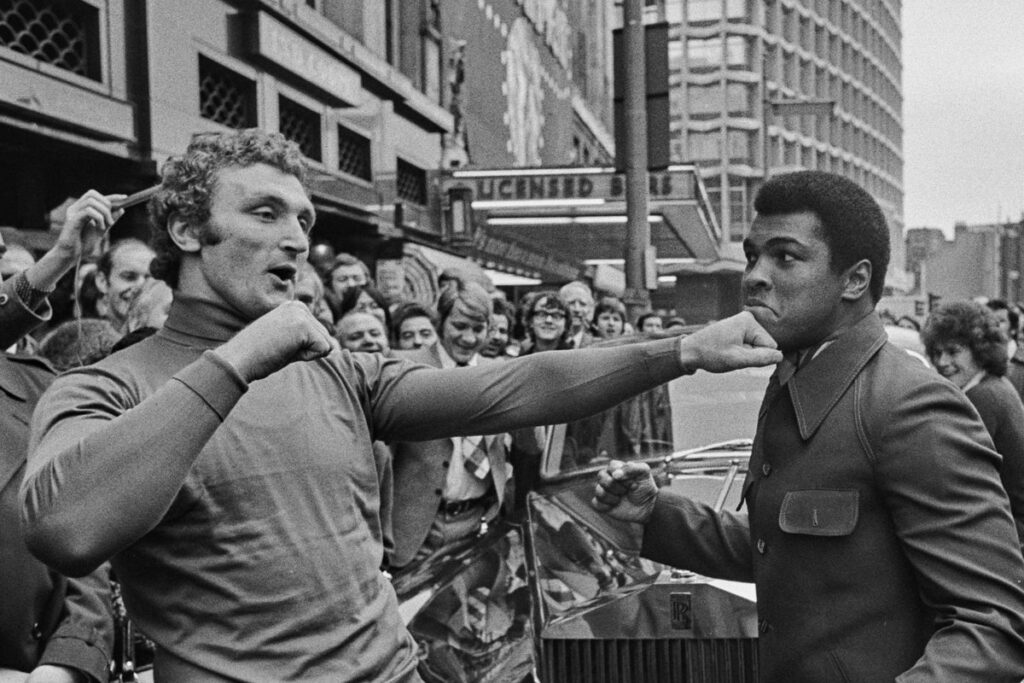The late Joe Bugner, who passed away on Monday, was one of the very best heavyweights in the world in the Seventies.
He fought Muhammad Ali twice, going the full 12 rounds in Las Vegas and then 15 rounds in their world-title fight in 118 degrees one morning in Kuala Lumpur. Those are stunning figures.
In the Seventies, Bugner was ranked in the top 10 at heavyweight for the entire decade and there were years and years when he was arguably No 4 behind Ali, George Foreman and Joe Frazier.
In one five-month period in 1973, Bugner went the full 12 rounds with Ali and Frazier in back-to-back fights. Frazier had just lost his world title to Foreman in a massive shock and was still considered dangerous.
The Frazier fight was at Earl’s Court and Bugner survived a knockdown to push the great Philadelphia boxer all the way. There is a solid argument that if the fight had been over 15 rounds and not 12, Bugner would have won. If he had got the decision after such a brutal fight, it would be one of the greatest wins ever by a British boxer – that is how good Bugner was.
In 1975, in Kuala Lumpur, Bugner got his one and only chance at a world title; he was still only 25 and he was having his 59th fight. It was brutal under the lights and in the torrid heat. Ali came to Bugner’s defence when the press attacked him at the end of 15 rounds. It is worth noting that in the fight before Bugner, Ali had stopped the brilliant Ron Lyle in the 11th round, and in the fight after Bugner, Ali would stop Frazier in the 14th round of the “Thrilla in Manila”.
So, Bugner was a player at the highest level. Yet the British press and the public, to a degree, had a love and hate relationship with him. In the world-title fight with Ali, Bugner – like his foe – had nothing left after about six rounds. In 118 degrees, they risked death. The criticism made Bugner bitter, and it had started after he beat Henry Cooper in front of 10,000 people at Wembley’s Empire Pool back in 1971.
Cooper was known as “Our ‘Enery”. He was adored, loved by the Royals, and his two bloody fights with Ali in the Sixties had guaranteed his status as a British sporting icon. Bugner was a refuge from Hungary, the young upstart, and the fight took place just three days after his 21st birthday – you had to be 21 to fight for the British title. It was also Bugner’s 35th fight; nobody will ever repeat those statistics.
After 15 tumultuous rounds, referee Harry Gibbs ignored Cooper at the end and raised Bugner’s hand; it was close, hard, savage at times, and not a great controversy. However, Harry Carpenter was raging on the BBC microphone. “How can they take a man’s belt like that?” he asked, and it seemed millions of viewers sided with Harry.
Enjoy 185+ fights a year on DAZN, the Global Home of Boxing
Never miss a fight from top promoters. Watch on your devices anywhere, anytime.
Buy Now
ADVERTISEMENT. If you sign up to this service we will earn commission. This revenue helps to fund journalism across The Independent.
Enjoy 185+ fights a year on DAZN, the Global Home of Boxing
Never miss a fight from top promoters. Watch on your devices anywhere, anytime.
Buy Now
ADVERTISEMENT. If you sign up to this service we will earn commission. This revenue helps to fund journalism across The Independent.
Bugner, just a kid at the time, was crushed, and that is a great sadness in my opinion. In 2007, Bugner sat with me and Cooper at a hotel in Mayfair; Cooper was still cold and angry and, when he left, Bugner was in tears. “I was treated like the man that shot Bambi’s dad back then, and it has not changed,” he said. “If I had known about the stink, I would have never fought him, and I tried to tell him that.” I was a witness, and Cooper was not listening.
The Cooper win was a major factor in the way Bugner was treated and perceived; when he moved to Australia and became “Aussie Joe”, he developed the character to attack the people who had attacked him. He was given a ridiculously hard time, something that would break most modern fighters. The boxing writers were brutal back then, trust me.
In Las Vegas in 1977, Bugner went toe-to-toe with Lyle and lost a tight, tight split decision. It was the end of the golden years for Bugner, and the craziness and circus years were just a few years away. In the end, he fought for 32 years and won 69 of his 83 fights.
He came back to London in 1982 to fight on Frank Warren’s shows at a hotel in Bloomsbury and on ITV. In 1987, after five years of goading and hype, he met and lost to Frank Bruno at White Hart Lane. The Bugner in the ring that night, in the drizzle, barely resembled the man from the Seventies.
Still, it is all part of the wonderful Joe Bugner story, and it is a very special one in boxing. There is a very solid argument that behind Lennox Lewis, big Joe Bugner is the second-best British heavyweight. That is not too bold a claim.
Read the full article here


